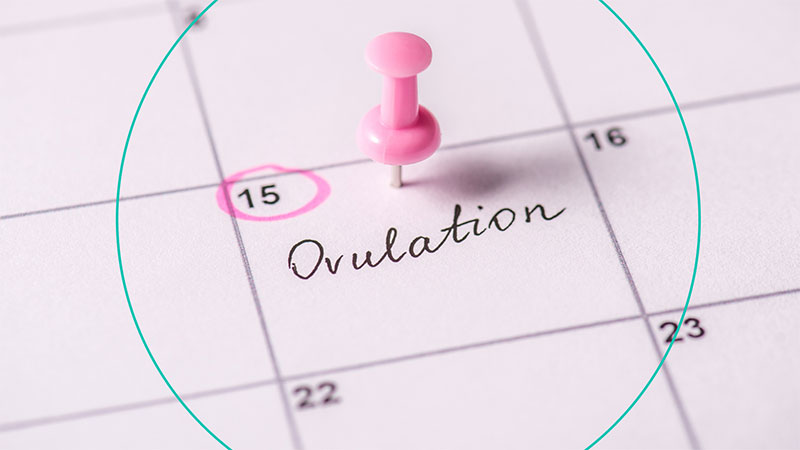Plan B is one of the most popular emergency contraception options available over-the-counter. It’s affordable, easy to take, and widely accessible without a prescription. But how effective is it really, especially when taken during ovulation? The short answer: not very. And the reason lies in how Plan B works—and when.
Plan B contains a synthetic hormone called levonorgestrel, which works mainly by delaying ovulation. That means it can stop your ovary from releasing an egg, giving any sperm present in the reproductive tract less of a chance to fertilize anything. But here’s the key detail many people don’t realize: if ovulation has already happened, Plan B likely won’t work. It doesn’t stop fertilization. It doesn’t interfere with an egg that’s already been released. And it definitely doesn’t affect implantation or end a pregnancy. Its mechanism is simple and time-dependent.
According to a well-known 2011 study in Contraception by Brache et al., Plan B (levonorgestrel) only works if taken before the luteinizing hormone (LH) surge—the hormonal trigger that tells your body to ovulate. If the pill is taken after that surge has begun, it fails to delay ovulation and is therefore significantly less effective at preventing pregnancy (PubMed source). So if you happen to take Plan B on the day of ovulation or just after, there’s a real chance it won’t prevent anything.
This is where understanding your menstrual cycle becomes crucial. While most cycles estimate ovulation to occur around Day 14, real-life ovulation is far less predictable. It can shift from month to month based on stress, illness, medication, travel, or even weight fluctuations. Many women ovulate earlier or later than expected—and without ovulation test strips or ultrasound monitoring, it’s easy to misjudge. If you’re near ovulation or unsure, the effectiveness of Plan B becomes uncertain.
This aligns with what Healthline and ACOG (American College of Obstetricians and Gynecologists) also point out: Plan B is not reliable during ovulation. In fact, according to Healthline’s comprehensive overview, taking Plan B during or just after ovulation provides little to no protection—because its job is to stop the egg from being released in the first place (Healthline source).
So what can you do if you’re already ovulating—or think you might be?
There are better alternatives.
Ella (ulipristal acetate) is a prescription-only emergency contraceptive that blocks the body’s progesterone receptors. It has been shown to delay ovulation even after the LH surge has started, giving it a significant advantage over Plan B during the fertile window. One large review published in Obstetrics & Gynecology confirmed that Ella maintains higher efficacy throughout the cycle, especially near ovulation (PubMed source).
Another highly effective option is the copper IUD (Paragard), which can be inserted by a clinician within five days of unprotected intercourse. Unlike hormonal pills, the copper IUD works by altering the uterine and tubal environment to inhibit sperm mobility and prevent fertilization or implantation. It’s more than 99% effective regardless of where you are in your cycle—and it provides long-term contraception for up to 10 years.
Let’s break this down with an example. A 30-year-old woman, Andrea, had unprotected sex during what she thought was a safe day. She took Plan B 24 hours later, but started ovulation cramping the same evening. Three weeks later, a pregnancy test was positive. Her OB explained that ovulation had already occurred, and Plan B couldn’t stop fertilization. For her second pregnancy scare, she opted for Ella, which delayed ovulation long enough for her body to reset naturally without risk. That difference in choice changed her outcome.
It’s also important to clear up common confusion: Plan B is not an abortion pill. It doesn’t terminate a pregnancy, doesn’t harm a fertilized egg, and has no effect on an already implanted embryo. This distinction is supported by every major medical authority, including the FDA and World Health Organization. Plan B is contraception, not termination.
So, when does Plan B work best? If taken within 72 hours of unprotected sex and before ovulation begins, Plan B is up to 89% effective. The earlier it’s taken, the better. Some sources note a very mild potential benefit up to 120 hours, but only if ovulation has not started. If you’re tracking ovulation with LH tests, you’ll know that once you get a strong positive, Plan B’s window is almost closed.
If you’re frequently using emergency contraception, or finding yourself unsure of timing each month, it might be time to look into more consistent contraceptive options—whether that’s oral birth control, a hormonal IUD, or non-hormonal methods paired with apps or ovulation kits. We explore several of these strategies in our blog posts on Clomid for women, fertility drugs, and online pharmacy solutions for contraception.
To summarize: Plan B does not reliably work during ovulation. If your cycle is mid-point and you’ve had unprotected sex, consider switching to Ella or scheduling a copper IUD insertion. These options are more effective and appropriate for the biology of that phase. And if you’re unsure—don’t guess. Talk to a provider, or use a reputable online pharmacy platform for next-step guidance.
Would you like a comparison table showing Plan B vs. Ella vs. copper IUD by timing and effectiveness? I can generate that too if it helps for blog layout or visual aid.
